LISTSOur biweekly lists lay out notable issues in the news and tell you what you can do about them.
|
SUBSCRIBE TO EMAIL UPDATES:
|
|
2/28/2021 0 Comments Black History Month 2021Hi everyone! We’re closing out February with our annual Black History Month list, featuring the below piece by Tirzah Thomas (fourth year in a row!). We also want to take a moment to point everyone to some already-existing resources we have on racial justice:
How Younger Generations of Allies can be Active in the Black Lives Matter MovemenT |
| Texas Weather: This past week, citizens in the American Southern Plains saw unprecedented tragedy. Numerous states were ravaged by record volumes of snow and temperatures nearing 0 degrees, fahrenheit. Texas, especially, has borne the brunt of this extreme weather, with each of the state’s 254 counties touched by the storm. Texas is the only state in America with its own power grid; to escape New Deal energy regulations decades ago, Texas’ government isolated their electrical network from the rest of the nation. Without regional reinforcements, Texas was unable to retain widespread power in the frigid temperatures. Many natural gas suppliers and some renewable energy mechanisms, like wind turbines, froze over, and at the peak of the crisis, over 7 million Texans were affected by blackouts. |
These outages, as well as infrastructural weaknesses that fail to protect homes from frigid weather, have catalyzed an alarming humanitarian crisis. Over the course of the week, citizens were left without heat, safe drinking water, and use of most utilities. Not to mention, homeless individuals, communities in poverty, and incarcerated individuals have experienced living conditions that threaten survival. According to the Washington Post, the storm’s reported death toll is about 30 - keep in mind, no statistics are absolute at this point.
As far as government response to this crisis goes, state authorities are actively coordinating with an array of commissions to assuage concerns about water quality, establish statewide warming centers, and restore a power grid deeply inflicted by weather damage. Federally, President Biden approved a Major Disaster Declaration for 77 counties on February 20 after having declared a state of emergency days before. Local governments and tribal communities in these areas will receive supplemental economic support. And while Texas Senator Ted Cruz fled to Mexico with his family to vacation, leaders like Cruz’s 2018 Senate opponent Beto O’Rourke and NY’s Rep. Alexandria Ocasio-Cortez raised funds and volunteer coalitions to address the emergency.
Moving into the week of the 22nd, conditions (both weather-related and within the power grid) are expected to greatly improve. However, the economic, humanitarian, and infrastructural impacts of this crisis are certainly indelible. We’re not powerless in mitigating them, though.
WHAT YOU CAN DO:
As far as government response to this crisis goes, state authorities are actively coordinating with an array of commissions to assuage concerns about water quality, establish statewide warming centers, and restore a power grid deeply inflicted by weather damage. Federally, President Biden approved a Major Disaster Declaration for 77 counties on February 20 after having declared a state of emergency days before. Local governments and tribal communities in these areas will receive supplemental economic support. And while Texas Senator Ted Cruz fled to Mexico with his family to vacation, leaders like Cruz’s 2018 Senate opponent Beto O’Rourke and NY’s Rep. Alexandria Ocasio-Cortez raised funds and volunteer coalitions to address the emergency.
Moving into the week of the 22nd, conditions (both weather-related and within the power grid) are expected to greatly improve. However, the economic, humanitarian, and infrastructural impacts of this crisis are certainly indelible. We’re not powerless in mitigating them, though.
WHAT YOU CAN DO:
- Donate to Texans in need:
- Mutual aid funds throughout Texas are sending most contributions to communities in need, consolidating and distributing resources. Donate in Austin (Venmo: @austinmutualaid), Dallas/Fort Worth (VM: @feedthepeopledallas), Houston (VM: @mutualaidhou), and San Antonio (VM: @trinitymutualaid).
- Donate to a variety of grassroots groups through AOC’s fundraiser here.
- Donate to the Austin Area Urban League’s emergency fund to provide shelter to families in need. Find their site here.
- Haven for Hope provides hundreds of homeless families in San Antonio with shelter, hygiene products, and clothing year-round! Make a tax-deductible donation here.
- Texas Jail Project advocates for incarcerated people by ensuring their safety and humane treatment, pushing for criminal justice reform, and investigating unjust protocols in Texas jails. Donate here to help inmates and incarcerated individuals affected by the weather.
- Volunteer with organizations that directly coordinate with Texans.
- Share resources on social media or directly to Texans to assist them in this crisis.
- The Partnership for Inclusive Disaster Strategies is providing help to disabled individuals affected by the weather crisis. Their hotline is located at 800-626-4959.
- Located here is an interactive map of warming centers in Texas that provide heated shelter in the cold.
- Business owners impacted by the weather and power outages can register for government disaster assistance at this site.
- Here is a guide to energy conservation and mindfulness as power outages ravage the state
| The Role of Climate Change: Texas, Oklahoma, and Arkansas aren’t supposed to be under weather advisory in the winter. Still, this crisis was predictable and, theoretically, more easily manageable. The jet stream that consolidates cold air at the North Pole (within the polar vortex) was weakened by an abrupt warming of the atmosphere above the Arctic. The jet stream, which traps in the polar vortex, is less equipped to handle an unstable polar vortex. So, this cold, low pressure air can leak out, causing extreme temperatures in places closer to the equator. This event is referred to as Sudden Stratospheric Warming, and caused cold air normally sustained near the US-Canada border to spill directly into the American South. Scientists have foreseen the emergence of this phenomenon for decades. Heating in the Arctic is a direct consequence of global warming, the irregular consolidation of greenhouse gases and CO2 in the atmosphere and subsequent securing of thermal energy. |
As we know, the Earth’s climate has been continuously warming, and patterns have been scientifically confirmed in America since at least the 1950s. Global warming is arguably the most daunting existential threat humanity has faced. Research from the Intergovernmental Panel on Climate Change indicates that if sweeping, bold action is not taken to shift energy production, within a decade, there will be no way to reverse this crisis and its impacts: rising sea levels, extreme weather like snowstorms, hurricanes, and droughts alike, worsened air quality, and the extinction of numerous species.
Not-so-coincidentally, it was Texas’ - and America’s - heavy reliance on natural gases that both created their crisis and prevented a swift response to it. Coal mining and oil drilling as a means of producing energy contribute thousands of tons of carbon emissions, among other dangerous substances, to the atmosphere annually. And when freezing temperatures froze over infrastructure that sustained this natural gas production in Texas, millions lost power. Incoming generations will be left to fend for themselves in environmental conditions that simply fail to sustain life if changes are not immediately made to environmental policy.
President Biden’s platform to confront climate change is extensive. He has proposed a plan to achieve a clean-energy economy with net-zero emissions by 2050, conserve at least 30% of American lands and waters with animals at risk of extinction, and prompt shifts to electric cars and renewable energy use by airlines. On his first day in office, Biden rejoined the Paris Climate Accord and cut off permits for the development of the Keystone XL Pipeline, a vast intracontinental oil conduit. He has also appointed the first Climate Envoy and promised to monitor the environmental responsibility of corporations and the government bureaucracy. The administration has been particularly focused on the connection between green energy and the economy, and hopes to create new jobs while addressing the climate crisis. They have also promised to give 40% of the benefits that come from government investment in clean energy to communities of color—this is an important first step, as Black, Indigenous and Latinx communities have bore the brunt of pollution, pipelines, and hazardous waste. However, a lot of Trump-era policy could take years to undo.
Amidst these ostensibly decisive plans, concerns about Republican resistance to his policies and activism from more progressive climate voices indicate that Biden’s plan may not suffice. Proposals like the Green New Deal that explicitly and expansively prioritize economic justice in tandem with climate appeal to many young people, but a call to balance feasibility and policy change continues to plague leaders in Washington.
WHAT YOU CAN DO:
Not-so-coincidentally, it was Texas’ - and America’s - heavy reliance on natural gases that both created their crisis and prevented a swift response to it. Coal mining and oil drilling as a means of producing energy contribute thousands of tons of carbon emissions, among other dangerous substances, to the atmosphere annually. And when freezing temperatures froze over infrastructure that sustained this natural gas production in Texas, millions lost power. Incoming generations will be left to fend for themselves in environmental conditions that simply fail to sustain life if changes are not immediately made to environmental policy.
President Biden’s platform to confront climate change is extensive. He has proposed a plan to achieve a clean-energy economy with net-zero emissions by 2050, conserve at least 30% of American lands and waters with animals at risk of extinction, and prompt shifts to electric cars and renewable energy use by airlines. On his first day in office, Biden rejoined the Paris Climate Accord and cut off permits for the development of the Keystone XL Pipeline, a vast intracontinental oil conduit. He has also appointed the first Climate Envoy and promised to monitor the environmental responsibility of corporations and the government bureaucracy. The administration has been particularly focused on the connection between green energy and the economy, and hopes to create new jobs while addressing the climate crisis. They have also promised to give 40% of the benefits that come from government investment in clean energy to communities of color—this is an important first step, as Black, Indigenous and Latinx communities have bore the brunt of pollution, pipelines, and hazardous waste. However, a lot of Trump-era policy could take years to undo.
Amidst these ostensibly decisive plans, concerns about Republican resistance to his policies and activism from more progressive climate voices indicate that Biden’s plan may not suffice. Proposals like the Green New Deal that explicitly and expansively prioritize economic justice in tandem with climate appeal to many young people, but a call to balance feasibility and policy change continues to plague leaders in Washington.
WHAT YOU CAN DO:
- Advocate for sweeping, progressive climate legislation.
- Sunrise Movement, a youth-led initiative focused on passing the Green New Deal, leads regular volunteer programs to push for concrete policy change. Learn about their demands for President Biden here.
- Find your legislators’ contact information at these links and contact them about climate policy that matters to you. Some promising items of legislation can be found here (requiring the declaration of a national climate emergency) and here (the Green New Deal).
- Find all of our previous coverage of climate change on our Index by the Issues page.
- Change your daily practices. On an idiosyncratic level, we can seek to minimize our carbon footprints and influence those around us to trigger piecemeal progress.
- Many powerful corporations rely on natural gas for manufacturing and delivering, and in the age of burgeoning industry, greenhouse gas emissions are a staple. Begin purchasing second-hand clothing, buying from local businesses, and being mindful of the sustainability policy of brands you purchase from.
- Change up your daily energy use. If you’re able, stray away from nonrenewable power sources and invest in solar energy, electric cars, and energy-efficient appliances.
- Research what you consume! Rather than purchasing foods that have undergone immense production, look into organic options.
| Reproductive Justice Update: Some of President Joe Biden’s first actions in office have centered around reproductive rights and justice. On January 28th, Biden signed an executive order to temporarily reopen the Affordable Care Act in order to expand access to health care during the pandemic. Along with this came another executive order that repealed the global gag rule. The gag rule is an anti-abortion policy introduced by Ronald Regan and then reinstated by Donald Trump during his presidency. It prevents organizations from receiving assistance from the United States to provide information, service, or referrals for abortion or from advocating for the accessibility of abortion in their country, even if they had their own money to support the cause. As a result, access to health care was prevented and reproductive rights were crippled. Biden’s goal is to undo many of Trump’s harmful actions, especially those relating to healthcare and reproductive rights. In addition to rescinding the gag rule, Biden pushed the Department of Health and Human Services to review a mandate by Trump that cut funding for family-planning programs that take a role in abortion services, such as Planned Parenthood, and ordered the reversal of a cut in funding to the United Nations Population Fund. |
Also related to reproductive justice comes a new act, the Black Maternal Health Momnibus Act of 2021, introduced by Congresswoman Lauren Underwood, Congresswoman Alma Adams, Senator Cory Booker, and associates of the Black Maternal Health Caucus. This act will:
WHAT YOU CAN DO:
- Make investments in social factors that determine maternal health outcomes, such as housing and transportation.
- Provide funding to organizations based in communities that are trying to improve maternal health outcomes.
- Study the risks that pregnant and postpartum veterans face and support VA maternity care programs.
- Diversify and grow the perinatal workforce in the United States to ensure that every mother receives care and support from those of similar cultures and backgrounds.
- Improve data collection and quality measures to better understand the maternal health crisis and provide solutions.
- Support mothers with maternal mental health conditions and disorders.
- Improve maternal health support and care for incarcerated mothers.
- Improve digital tools and provide them to areas that are underserved as to improve maternal health outcomes.
- Promote more innovative pay models to make high-quality maternal care more accessible.
- Invest in programs that study the effects of COVID on pregnancy.
- Invest in community-based initiatives that aim to reduce the climate-change exposure and risks on mothers and babies.
- Promote maternal vaccinations to protect the health of mothers and babies.
WHAT YOU CAN DO:
- Contact your Representative and ask them to co-sponsor the Black Maternal Mobius Act. Use this link to do so: https://secure.ngpvan.com/lcYyQt6fcEu5y9cgHWODLQ2?ms=email_rj_advo_em20210211&emci=d8b61c7c-a66c-eb11-9889-00155d43c992&emdi=0d0c2a53-ac6c-eb11-9889-00155d43c992&ceid=5180029
- Follow the Black Maternal Health Caucus on Twitter to stay in loop with all updates.
- Use social media to spread the word about this act! Use the sample posts provided by the Black Maternal Health Caucus.
| Invest in Our New York Act: Hundreds of thousands of New Yorkers are suffering. As a result of the pandemic, countless people have been going hungry and homeless, and live in despair. New York State has the 5th highest unemployment rate in America. Over 1.4 million New Yorkers are facing eviction. To make matters worse, over one million immigrants are excluded from unemployment benefits, housing, and federal stimulus checks. Notwithstanding all this suffering, the top 1% of New Yorkers are only getting richer. They are capturing over half of New York’s economic growth. New York’s 120 billionaires have experienced a wealth increase of $77 billion throughout the pandemic. Yet they enjoy a shockingly low amount of taxes. As a result, poor people are suffering while the top 1% take home billions. Is that fair? |
The Invest in Our New York Act aims for a more progressive tax. The authors of the act propose new and higher income tax brackets starting at $300,000 per year for individuals, and $450,000 for married people. Furthermore, the Act would create new brackets to those who earn more than $300,000/$450,000 and an even higher bracket for those who earn between $10 million and $100 million. This means that over 95% of New Yorkers will not see a change in their income tax. Even for the few that will, the effect would be manageable.
Many wealthy people earn most of their money from capital gains, as opposed to the average person who earns most of their income from working jobs. The federal capital gains tax at this time provides for a relatively low rate. That tax rate may or may not change. That is why the Act would add a New York state capital gains tax. This tax would generate $7 billion per year for New York. Many wealthy people also receive money through large amounts of inherited wealth, and they don’t get sufficiently taxed on it. That’s why the Act provides for an Heirs’ Tax to tax inheritance. Most New Yorkers would not be affected by this tax.
The act would also introduce other kinds of taxes applying to wealthy New Yorkers. In total, these new taxes would raise at least $50 billion per year and possibly more.
Raising taxes is always unpopular. And the risk that wealthy New Yorkers, particularly foreigners, will leave New York State so they no longer have to pay state taxes does exist. Yet these are extraordinary times, times that have affected New York State with the worst pandemic in a century. Increased taxation for the rich is essential and it is fair. Something must be done.
You can learn more here.
WHAT YOU CAN DO:
Many wealthy people earn most of their money from capital gains, as opposed to the average person who earns most of their income from working jobs. The federal capital gains tax at this time provides for a relatively low rate. That tax rate may or may not change. That is why the Act would add a New York state capital gains tax. This tax would generate $7 billion per year for New York. Many wealthy people also receive money through large amounts of inherited wealth, and they don’t get sufficiently taxed on it. That’s why the Act provides for an Heirs’ Tax to tax inheritance. Most New Yorkers would not be affected by this tax.
The act would also introduce other kinds of taxes applying to wealthy New Yorkers. In total, these new taxes would raise at least $50 billion per year and possibly more.
Raising taxes is always unpopular. And the risk that wealthy New Yorkers, particularly foreigners, will leave New York State so they no longer have to pay state taxes does exist. Yet these are extraordinary times, times that have affected New York State with the worst pandemic in a century. Increased taxation for the rich is essential and it is fair. Something must be done.
You can learn more here.
WHAT YOU CAN DO:
- Visit investinourny.org and sign the petition
- Use https://p2a.co/EkZVEbW to call and email Governor Cuomo, your state senator, and your state assembly member. You can use https://www.nysenate.gov/find-my-senator to find your state senator and https://nyassembly.gov/mem/search/ to find your state assembly member.
- You can call and email Speaker Carl Heastie at 518-455-3791 or speaker@nyassembly.gov
This list was written by Sabrina Thaler, Mia Reiland, Ananya Gera, and Sarah Germana and edited by Sonia Chajet Wides and Kate Griem.
Hi everyone!
We know that it's been a while; we hope that you are your families are staying safe and well. We are back and will be back on our biweekly schedule! We're excited to be here with you.
This list has a lot of heavy political info — mostly impeachment & various forms of COVID-19 relief. We break it all down for you and provide easy, concrete ways for you to get involved below.
Peace & power,
Teens Resist
We know that it's been a while; we hope that you are your families are staying safe and well. We are back and will be back on our biweekly schedule! We're excited to be here with you.
This list has a lot of heavy political info — mostly impeachment & various forms of COVID-19 relief. We break it all down for you and provide easy, concrete ways for you to get involved below.
Peace & power,
Teens Resist
what went down:
| Trump's Second Impeachment: On January 13, Former President Donald Trump became the first president to be impeached by the House of Representatives twice. On Tuesday, February 2, House managers explained their case against Trump in an 80-page brief. The former president has been impeached on the basis of inciting the insurrection at the Capitol that occurred on January 6. In their brief, House Democrats wrote: “If provoking an insurrectionary riot against a joint session of Congress after losing an election is not an impeachable offense, it is hard to imagine what would be.” The House has voted to impeach, so the process now moves to the Senate, where Trump’s impeachment trial will formally begins Wednesday at noon. (The Senate just voted, 56-44, that it is constitutional for the trial to proceed!) Two thirds of Senators must vote to convict, meaning that 17 Republican senators will need to side with their 50 Democratic colleagues for Trump to be convicted — a very unlikely result. |
If Trump is no longer in office, what would this conviction mean? Conviction after impeachment prevents that individual from ever holding public office again. (“The framers of the Constitution feared a president who would corrupt his office by sparing ‘no efforts or means whatever to get himself re-elected,’” said House Dems in their brief.) Given Donald Trump’s consistent disregard for the Constitution and our systems of government — and his insinuation that he would run again — that punishment is what many Democrats are after. Conviction aside, even the process of a trial sends a loud and clear message to the world.
On February 4, the House managers reached out to the former president’s legal team to ask if Trump would testify at his trial. His lawyers swiftly declined the offer. The Senate trial this week will be among the final milestones of the Trump presidency, and perhaps among the most momentous.
WHAT YOU CAN DO:
On February 4, the House managers reached out to the former president’s legal team to ask if Trump would testify at his trial. His lawyers swiftly declined the offer. The Senate trial this week will be among the final milestones of the Trump presidency, and perhaps among the most momentous.
WHAT YOU CAN DO:
- If you live in a state with Republican senators (none of whom have pledged to vote to convict Trump) reach out to their offices and put pressure on them to vote with Senate Democrats! To find numbers & emails, visit your Senators’ websites and go to the contact page to submit an email or find an office number.
- Here is a script you can use to call or email:
- Hi there, My name is [your name] and I am a [student/constituent/title] from [city/town you’re from]. I’m calling to urge Senator [Senator’s name] to vote to convict Former President Trump in his upcoming impeachment trial. Donald Trump was a threat to our democracy throughout his entire four years in office, which culminated in an insurrection of our nation’s Capitol. This attack on our democracy was directly incited by the former president, not only in the hours before the attack, but for years beforehand. Please, stand on the right side of history. Thank you very much for your time, I sincerely hope I can trust Senator [Senator’s name] to do the right thing.
COVID-19 Relief:
| Stimulus Update: Currently, President Biden’s $1.9 trillion COVID-19 relief plan is making its way through Congress. The plan includes:
|
- Weekly $400 unemployment benefits through September, with triggers included so that payments continue after September for those who need it, and payment adjustments linked to economic & healthcare needs.
- In accordance with their goal of 100 million vaccines distributed in the first 100 days, the Biden administration is including $160 billion for vaccine distribution.
- The plan also expands child tax credit, giving $3,000-3,600 credits to families with children under 17, and expands childcare tax credits for up to $8,000 for families with multiple children under 13.
- Tens of millions of dollars dedicated to safely reopening schools nationwide.
- Money for local, state, and tribal governments.
- Extending the eviction ban through September (see our eviction section for more info on this).
- The original plan was expected to include $15 minimum wage and student loan forgiveness. It now seems like those will be passed as separate policies to ensure that the rest of the relief package can pass as soon as possible.
The bill’s unusual journey through the legislature (going through the Senate before the House), which ordinarily approves a bill in the House before it goes to the Senate, was the result of a tactic called budget reconciliation. Democrats chose to use this strategy to avoid negotiating the gained the support of seventeen Republicans — normally, budget and revenue bills must pass with a supermajority (⅔), but budget reconciliation only needs a simple majority to pass in the Senate. The process has a 20-hour cap on filibusters, which was reached Friday morning. Now, the bill is in the House for budgetary tweaks. Since budget reconciliation does not require bipartisan support, there are strict guidelines as to how it can be used. More than 800 amendments to the package were drafted, which is why the package will not include Biden’s proposed $15 federal minimum wage. As the budget reconciliation process is only meant to be used for spending legislation, it is an appropriate avenue through which to pass the relief package. So, now we wait for the bill to be refined in the House, and we can expect the plan to be enacted in a couple of weeks.
WHAT YOU CAN DO:
- Urge your Senators to push the third stimulus package through as quickly as possible and support only the version that provides Americans with the most support.
- Number to call: 202-224-3121 (Capitol switchboard). Or, find your senator here and your representative here.
- Script: Hi, my name is ______, I’m from _____, and I'm calling to ask you to push forward the third stimulus package with as much urgency as possible. I believe that our most important responsibility right now is to provide Americans with the emergency support they need. I also urge you to support only the most progressive version of the plan — refusing to limit stimulus eligibility or otherwise make compromises that will hurt those in need. I ask you to use your conscience in making your decisions on this topic. Thank you.
- Beyond stimulus, mutual aid is a way that you can continue to support people in your own community through a network of solidarity. Click here to find places to donate near you. And click here to understand more about mutual aid courtesy of Rep. Alexandria Ocasio-Cortez’s office & activist and writer Mariame Kaba.
- Stay up to date on stimulus efforts using this frequently updating article.
| Eviction Moratoriums, Rent Relief, and the Housing Crisis (National and NY): COVID-19 has put the third of Americans who rent homes — over forty million —in a bind. For many, unemployment (or underemployment) has slashed the income that tenants need to pay rent. But as long as the most effective public health guidance remains to “stay inside,” it’s more critical than ever that renters are able to remain in their homes. Federal and state governments have addressed this crisis with a patchwork of programs designed to shield renters against the pandemic’s worst financial impacts. Eviction moratoriums prohibit landlords from kicking tenants out of their homes. |
Rent relief programs provide economic assistance to tenants or landlords to make up for unpaid rent. On his first day in office, President Biden extended a federal eviction moratorium through the end of March; a current moratorium in New York State will expire in the beginning of May. Eviction moratoriums save lives; public health experts have found that 10,700 Covid-related deaths have been linked to the expiration of federal eviction moratoriums over the summer.
Still, eviction moratoriums have holes. Landlords can choose not to renew a tenants’ lease, which has the same effect as an eviction, and evictions may be allowed for reasons other than nonpayment. Marginalized renters — including immigrants and non-English speakers, seniors without internet, and lowest-income tenants — may not know how to take advantage of the current protections. To qualify under the federal moratorium, renters must know to provide a signed copy of the CDC’s moratorium declaration. And while eviction moratoriums prevent actual evictions from taking place, they don’t stop landlords from starting eviction proceedings. Tenants who are unaware of their rights often respond to a notice of these proceedings by moving out far before they are required to.
In addition, eviction moratoriums alone arguably just push the ball down the road; once they end, millions of tenants who’ve lost a year of income due to COVID will be again vulnerable to eviction. Rent relief to address the billions of dollars of back rent owed by American tenants — estimates range up to $70 billion — is necessary.
Finally, COVID-19 didn’t create this country’s housing crisis. To qualify for most governmental assistance, tenants have to demonstrate that their ability to pay rent was affected by COVID (itself an added hurdle for undocumented people or those with difficulty getting their paperwork together). But millions were already struggling to attain and retain a stable and affordable living situation before the pandemic. Once this pandemic is over, our governments and communities will be tasked with a radical rethinking of how we distribute housing, property and resources.
WHAT YOU CAN DO:
Still, eviction moratoriums have holes. Landlords can choose not to renew a tenants’ lease, which has the same effect as an eviction, and evictions may be allowed for reasons other than nonpayment. Marginalized renters — including immigrants and non-English speakers, seniors without internet, and lowest-income tenants — may not know how to take advantage of the current protections. To qualify under the federal moratorium, renters must know to provide a signed copy of the CDC’s moratorium declaration. And while eviction moratoriums prevent actual evictions from taking place, they don’t stop landlords from starting eviction proceedings. Tenants who are unaware of their rights often respond to a notice of these proceedings by moving out far before they are required to.
In addition, eviction moratoriums alone arguably just push the ball down the road; once they end, millions of tenants who’ve lost a year of income due to COVID will be again vulnerable to eviction. Rent relief to address the billions of dollars of back rent owed by American tenants — estimates range up to $70 billion — is necessary.
Finally, COVID-19 didn’t create this country’s housing crisis. To qualify for most governmental assistance, tenants have to demonstrate that their ability to pay rent was affected by COVID (itself an added hurdle for undocumented people or those with difficulty getting their paperwork together). But millions were already struggling to attain and retain a stable and affordable living situation before the pandemic. Once this pandemic is over, our governments and communities will be tasked with a radical rethinking of how we distribute housing, property and resources.
WHAT YOU CAN DO:
- Support a NYS rent relief plan recently introduced by New York Housing Committee Chair Senator Kavanaugh, which will create a program for disbursing the $1.3 billion of federal rent relief funding available to NYS through the December stimulus package.
- Senator Kavanagh wants to move as quickly as possible to get money into the hands of New Yorkers in need, rather than waiting until the April 1 budget deadline. His plan (which is still in flux) is a counter to Gov. Cuomo’s budget proposal, which calls for the funding to flow through a state social services agency.
- Numbers to call: Call your state representatives! (Find them here).
- Script: Hi, my name is ______, I’m from _____, and I'm calling to ask you to support Senator Kavanagh’s recent plan to disburse $1.3 billion of federal rent relief funding, S02742/A03918, including an emergency voucher and rent assistance program. Rather than waiting for April budget deadline and following Gov. Guomo’s plan, I urge you to fasttrack the process with Senator Kavanagh’s, getting rent relief into New Yorker’s hands as soon as possible. I ask that you use your conscience on making your decisions on this topic. Thank you.
- Donate:
- Support the third stimulus and relief package making its way through Congress right now! The bill would extend the federal eviction moratorium through September, and would include another $25 billion in assistance for back rent. Actions to support the stimulus are included above in this list.
- Read about the pandemic’s toll on housing in the New York Times: https://www.nytimes.com/2021/02/06/business/economy/housing-insecurity.html
| Local Restaurant Relief: COVID-19 has stripped American communities of so much. High on the list of casualties are America’s vibrant, economically supportive local restaurants which, according to a study done by the Independent Restaurant Coalition, are expected to be cut down by 85% due to forced closure by the end of the pandemic. Since the start of the pandemic, local restaurants have lost 2.5 million jobs. Local, independent restaurants are vital to American communities for a number of reasons. One reason is the multitude of jobs they provide to Americans. So, wide-spread closure of restaurants with no economic support from the federal government is costly not only for a restaurant’s profits, but also for their ability to support or furlough employees whose jobs are unsafe to perform in a pandemic. This strains the restaurant’s owners as well as the employees. Those specifically in jeopardy from widespread unemployment are immigrants, as immigrants make up a huge portion of independent, local restaurants. |
The grim future for local restaurants also provokes concern over the tension between small, local restaurants and corporate chains. Corporate restaurants have a much easier time sustaining economic crises because of the enormous capital they have from their corporate backers and the low wages which they pay their employees. By stimulating local restaurants, the restaurant industry can shift away from reliance on huge companies which have been working tirelessly to use this moment of weakness to accumulate more wealth.
Some good news on the matter is that on February 5th, the Restaurants Act of 2021 was reintroduced to Congress. While distinct from the last version, the Restaurants Act is a bipartisan effort to restabilize American local restaurants, indicating a strong chance of passing in the Senate.
WHAT YOU CAN DO:
First, here’s a brief list of groups you can support, donate to, and volunteer at:
Some good news on the matter is that on February 5th, the Restaurants Act of 2021 was reintroduced to Congress. While distinct from the last version, the Restaurants Act is a bipartisan effort to restabilize American local restaurants, indicating a strong chance of passing in the Senate.
WHAT YOU CAN DO:
First, here’s a brief list of groups you can support, donate to, and volunteer at:
- The Independent Restaurant Coalition
- New York State Restaurant Association
- Order from local restaurants as much as you can
- Call your Representative and Senator and ask that they vote to pass the Restaurants Act of 2021.
- Number: 202-224-3121
- Script: My name is [YOUR NAME] and I live in [CITY]. I am calling to urge you to vote to pass the Restaurants Act of 2021, [for House: H.R. 793; for Senate: S.255]. While the Senate has passed some promising pieces of legislation that can provide substantial relief to restaurants all over the country, the Restaurants Act of 2021 can help to secure more essential relief for local restaurants. This will not only help restore life and support to our communities, return jobs, and save thousands of restaurants from closing, but it will also prevent countless lives. Due to the contagion of COVID-19, there is substantial correlation between unsafe dining and rising COVID cases. If restaurants feel financial pressure to open up, they risk the safety of not only their employees, but their customers. If they are provided appropriate federal financial assistance, social distancing can continue and countless lives will be saved. Thank you.
Death Care Support:
Content Warning: Focus on deceased bodies and Covid-19. No graphic descriptions or images.
As COVID-19 cases in the U.S. have spiked, so have the number of deaths. These deaths have caused a strain on the nation’s funeral homes, mortuaries, and morgues have the capacity to care for. This issue in and of itself is deeply uncomfortable to confront because of what it signifies about COVID response and the number of deaths we’re facing. That being said, a response to this crisis is necessary so that we can all be kept safe.
While this is scary and unsettling to experience, it is not the first mass casualty event the American death care system has faced. There are plans and support systems in place to deal with a larger number of bodies than the existing system can handle. Unfortunately, despite their advantages, some of these support systems have been misrepresented in the news.
One support system is the use of refrigerated trucks to care for bodies, which are a good example of disaster response in dealing with the dead. Another example is the use of places like Hart Island, a cemetery for unclaimed bodies, people who died and had no one to arrange their burial or cremation. It’s been used as a cemetery for over 150 years. Hart Island, and other cemeteries like it, have been getting more attention because there are more unclaimed dead bodies now due to Covid-19. Again, this is a normal response to large numbers of bodies. Everything is organized and bodies are not cast aside or forgotten. You can even go to https://www.hartisland.net/ to see some of the older burial records of the island.
Deathcare is not always pretty, or easy to think about. During the pandemic and before, much of the labor in the United States has been acquired unethically, through the exploitation of incarcerated people. While this issue should be dealt with, the deathcare system is not entirely responsible.
There are two important things to remember. First, while the Covid-19 pandemic is scary, there is no reason to fear the responses that help deal with its effects. Second, this pandemic has revealed many problems and shortcomings with the systems of our nation. Many levels of government have failed to meet communities’ and the nation’s needs. When the pandemic is over these problems won’t disappear. It’s our responsibility to fight for systems that will support all people.
Action Items:
Content Warning: Focus on deceased bodies and Covid-19. No graphic descriptions or images.
As COVID-19 cases in the U.S. have spiked, so have the number of deaths. These deaths have caused a strain on the nation’s funeral homes, mortuaries, and morgues have the capacity to care for. This issue in and of itself is deeply uncomfortable to confront because of what it signifies about COVID response and the number of deaths we’re facing. That being said, a response to this crisis is necessary so that we can all be kept safe.
While this is scary and unsettling to experience, it is not the first mass casualty event the American death care system has faced. There are plans and support systems in place to deal with a larger number of bodies than the existing system can handle. Unfortunately, despite their advantages, some of these support systems have been misrepresented in the news.
One support system is the use of refrigerated trucks to care for bodies, which are a good example of disaster response in dealing with the dead. Another example is the use of places like Hart Island, a cemetery for unclaimed bodies, people who died and had no one to arrange their burial or cremation. It’s been used as a cemetery for over 150 years. Hart Island, and other cemeteries like it, have been getting more attention because there are more unclaimed dead bodies now due to Covid-19. Again, this is a normal response to large numbers of bodies. Everything is organized and bodies are not cast aside or forgotten. You can even go to https://www.hartisland.net/ to see some of the older burial records of the island.
Deathcare is not always pretty, or easy to think about. During the pandemic and before, much of the labor in the United States has been acquired unethically, through the exploitation of incarcerated people. While this issue should be dealt with, the deathcare system is not entirely responsible.
There are two important things to remember. First, while the Covid-19 pandemic is scary, there is no reason to fear the responses that help deal with its effects. Second, this pandemic has revealed many problems and shortcomings with the systems of our nation. Many levels of government have failed to meet communities’ and the nation’s needs. When the pandemic is over these problems won’t disappear. It’s our responsibility to fight for systems that will support all people.
Action Items:
- To stop the spread of misinformation you can check out some of these resources for a better understanding of pandemic responses.
- https://www.youtube.com/watch?v=zLl5yikUKfk
- https://www.newyorker.com/news/our-local-correspondents/the-transformation-of-hart-island
- https://www.hartisland.net
- https://www.latimes.com/california/story/2021-01-07/national-guard-refrigerated-trucks-help-manage-covid-deaths
- https://council.nyc.gov/data/hart-island/#:~:text=Hart%20Island%20was%20first%20used,81%20children%2C%20and%20829%20adults.
- Remember to check your sources of information for bias and misinformation. Use a reliable fact checker like Snopes or PolitiFact.
- Funeral costs are something that are, fortunately, being partially covered by the federal government as of this week. However, funerals and deathcare can be very expensive, so keep an eye out for GoFundMes and mutual aid requests related to funerals around you (one good resource is @openyrpurse on Instagram)
This list was written by: Betty Kubovy-Weiss, Sonia Chajet Wides, Kate Griem, Miranda Licardo, Lily Seltz, Minna Bachman, and Leo Levine
UPdates
These lists include featured organizations, scripts, numbers, news updates and inspirational activists.
Archives
January 2022
April 2021
March 2021
February 2021
December 2020
November 2020
October 2020
September 2020
August 2020
July 2020
June 2020
May 2020
April 2020
March 2020
February 2020
January 2020
December 2019
November 2019
October 2019
September 2019
August 2019
July 2019
June 2019
May 2019
April 2019
March 2019
February 2019
January 2019
December 2018
November 2018
October 2018
September 2018
August 2018
July 2018
June 2018
May 2018
April 2018
March 2018
February 2018
January 2018
December 2017
November 2017
October 2017
Categories
About |
Content |
|
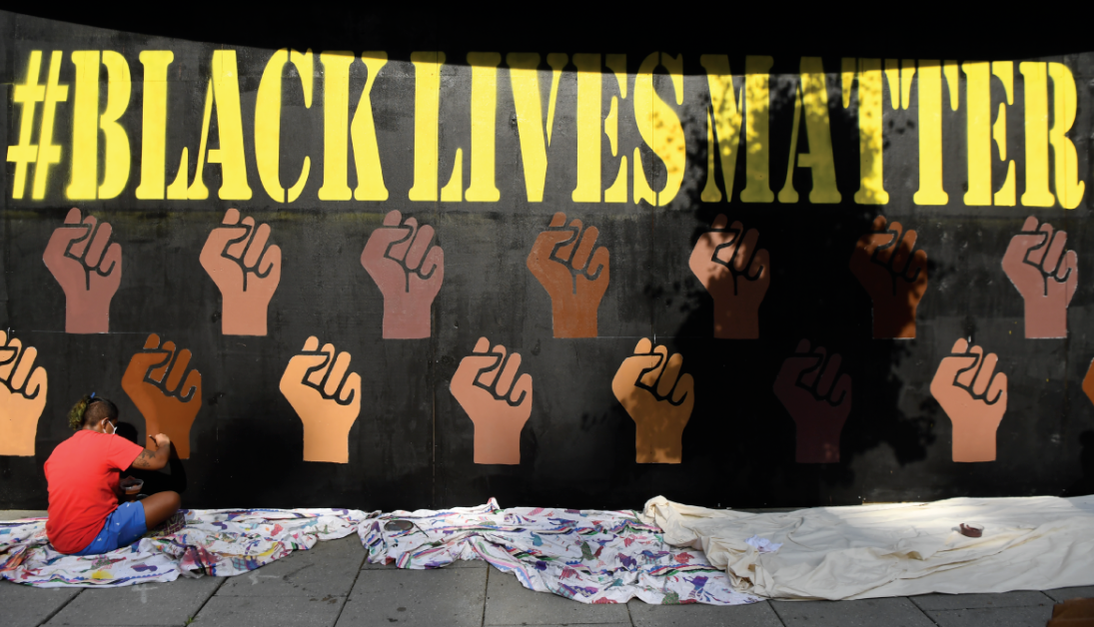
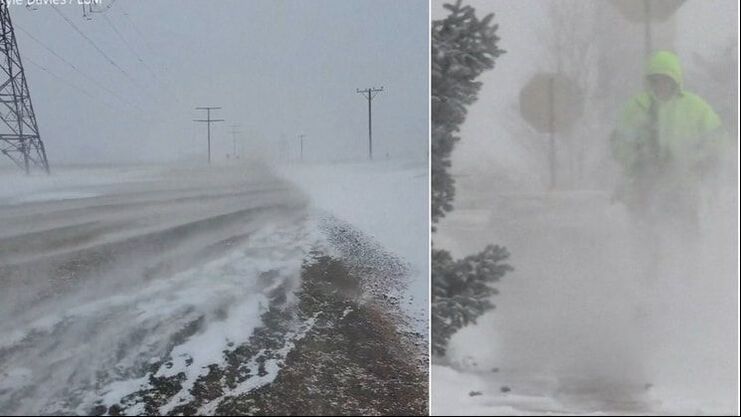

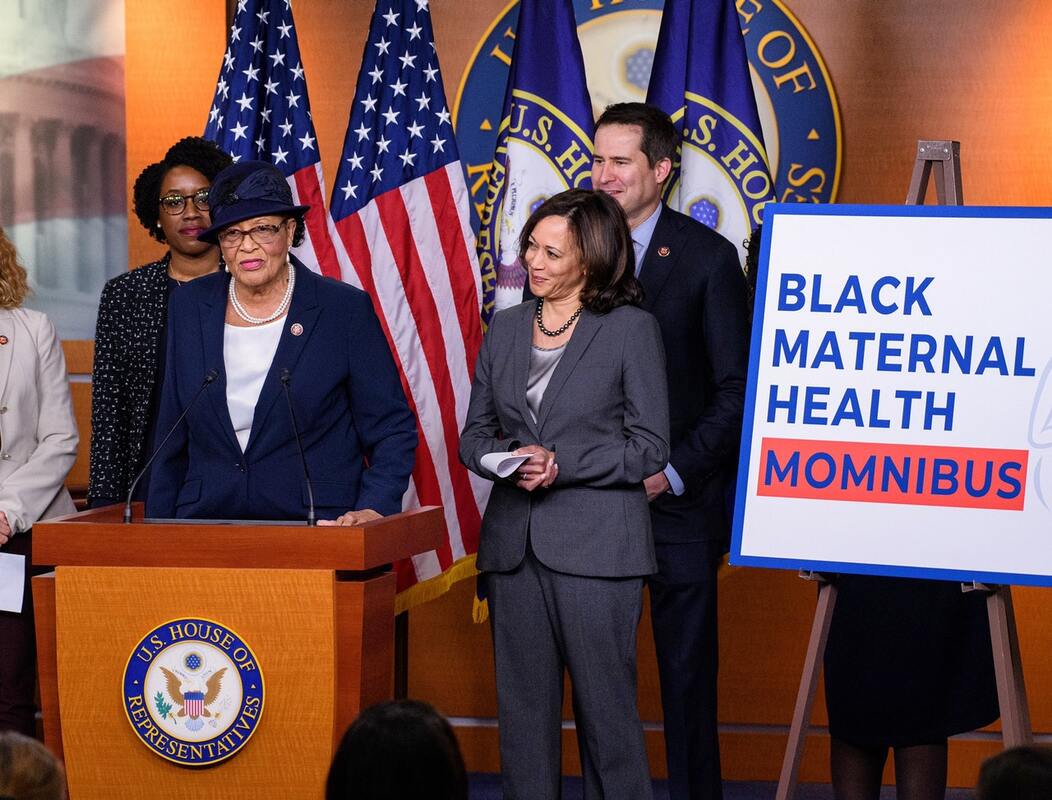
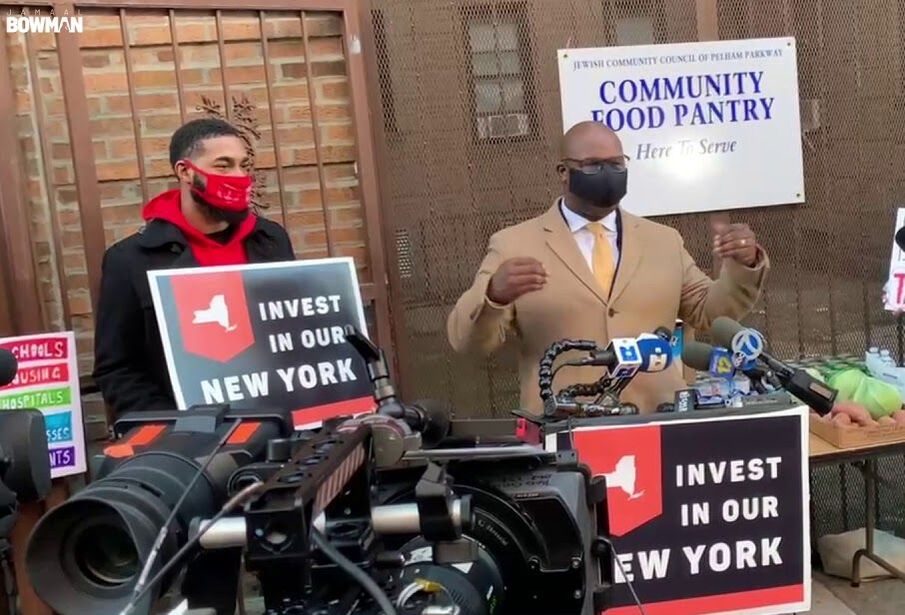
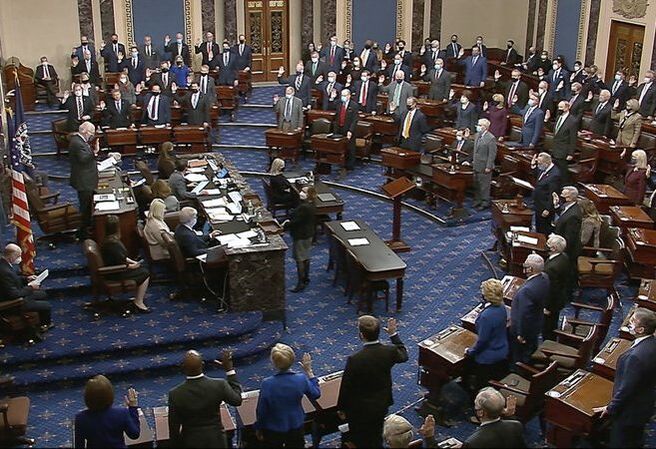

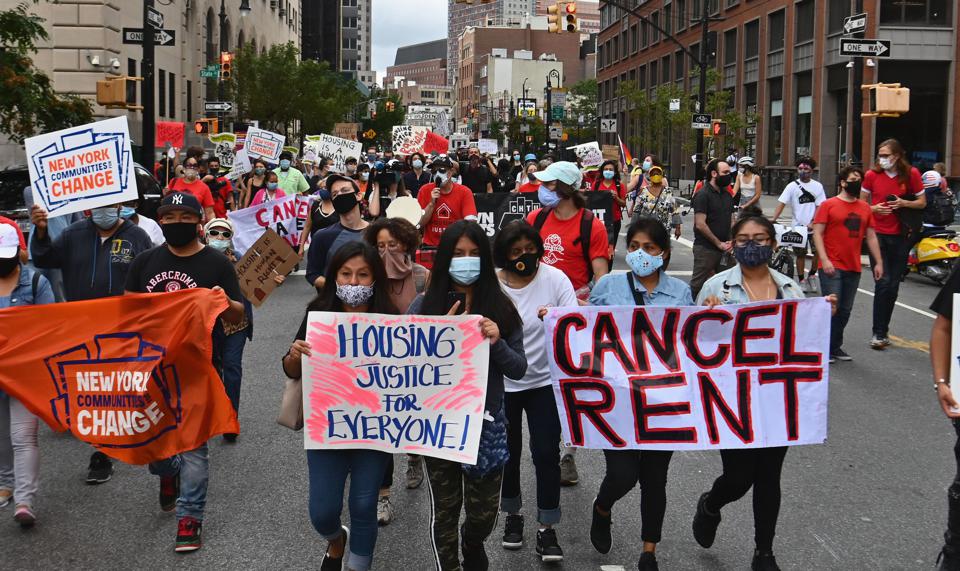
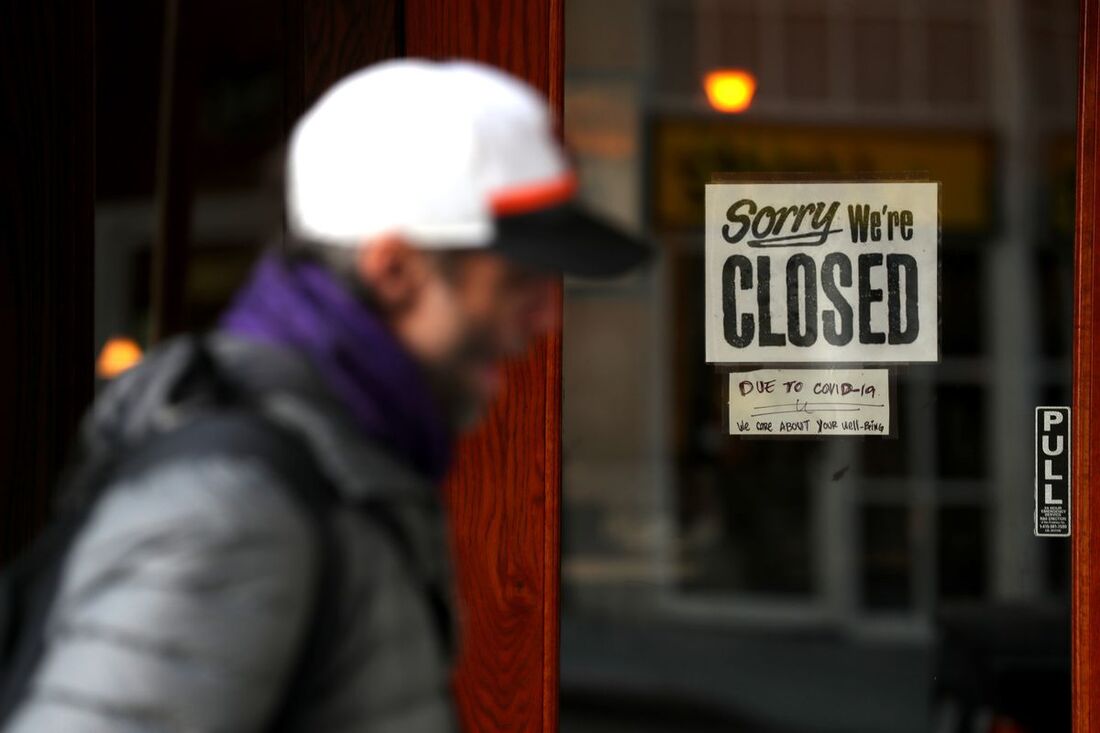
 RSS Feed
RSS Feed
